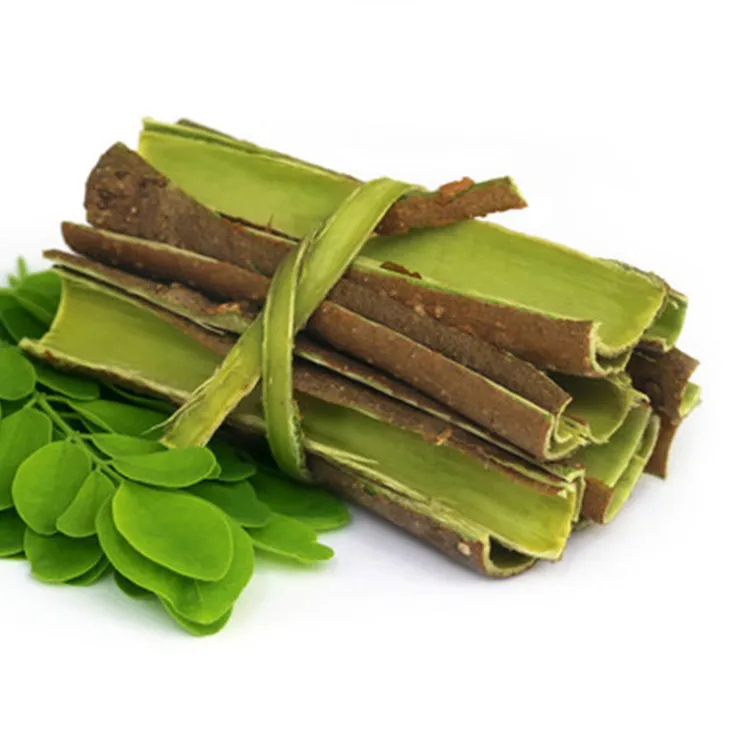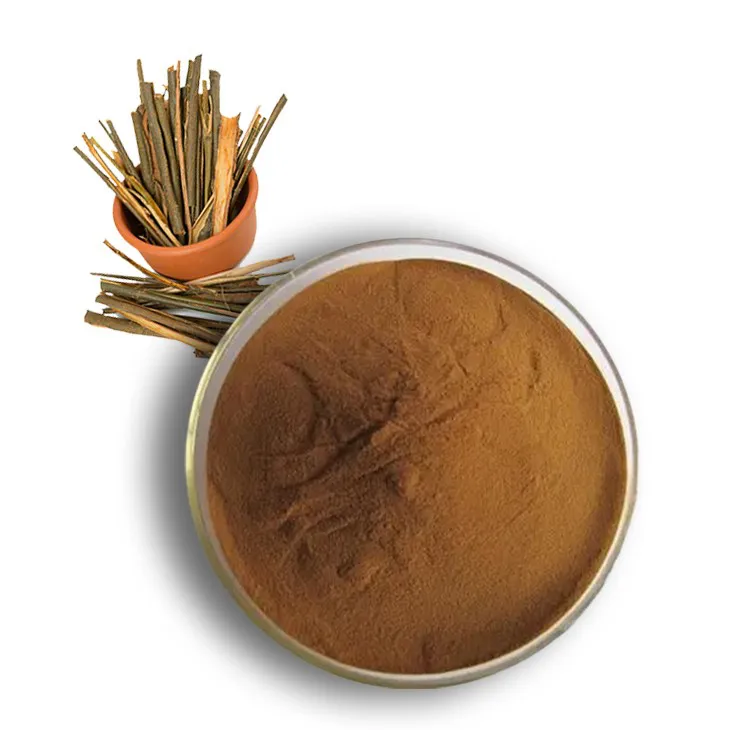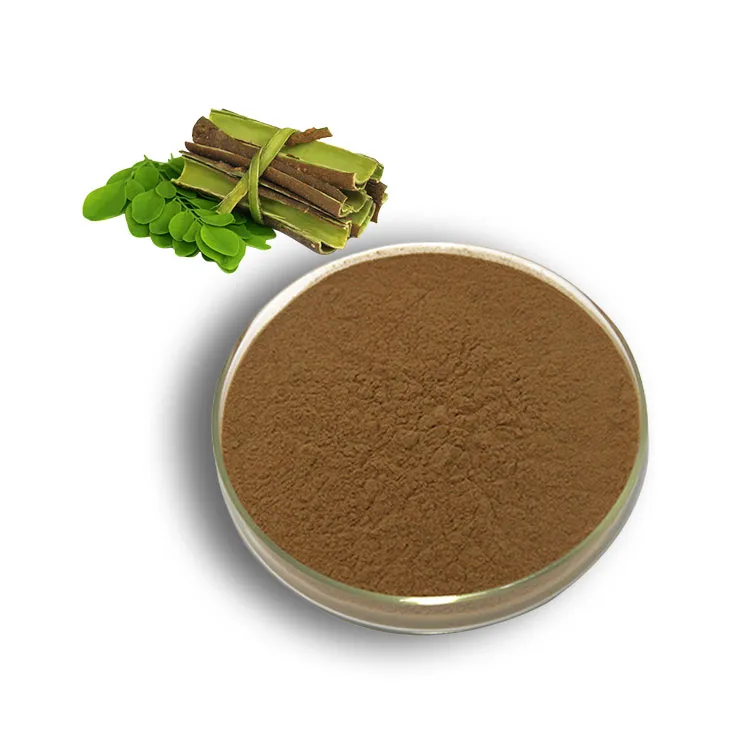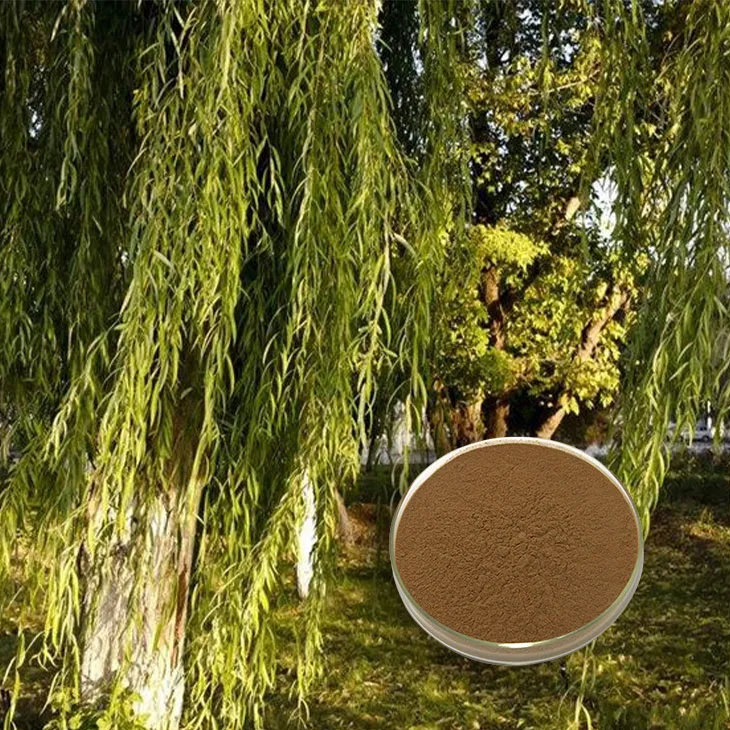- 0086-571-85302990
- sales@greenskybio.com
Organic White Willow Bark Extract, Australia.
2024-11-30

Introduction to Australian White Willow
Australia is renowned for its diverse and unique flora, which is a result of its isolated geographical location, diverse climate zones, and long - standing evolutionary processes. Among this rich botanical heritage, the white willow (Salix alba) stands out as a plant with significant value. The white willow is native to parts of Europe and Asia, but it has also been successfully cultivated in Australia. The Australian environment provides a suitable habitat for the white willow, allowing it to thrive and develop unique characteristics.

The History of White Willow Bark in Traditional Medicine
The use of white willow bark in traditional medicine dates back thousands of years. Ancient civilizations such as the Greeks and the Native Americans were among the first to discover the medicinal properties of white willow bark. In ancient Greece, Hippocrates, often regarded as the father of medicine, recommended the use of white willow bark to relieve pain and reduce fever. The Native Americans also used white willow bark for similar purposes, passing down their knowledge through generations.
Throughout history, white willow bark has been used in various forms. It was often dried and ground into a powder, which was then made into a tea or poultice. This traditional use was based on the empirical knowledge that the bark had certain healing properties, although the exact mechanisms were not understood at the time.

The Composition of Organic White Willow Bark Extract
The key component in organic White Willow Bark Extract is salicin. Salicin is a glycoside, which is a type of compound consisting of a sugar molecule attached to another non - sugar molecule. In the case of salicin, it is a precursor to aspirin. When salicin is ingested or applied topically, it undergoes a series of biochemical reactions in the body. These reactions convert salicin into salicylic acid, which is the active form that provides the anti - inflammatory, analgesic (pain - relieving), and antipyretic (fever - reducing) effects.
Besides salicin, White Willow Bark Extract also contains other beneficial compounds. These include flavonoids, phenolic acids, and tannins. Flavonoids are known for their antioxidant properties, which help protect the body's cells from damage caused by free radicals. Phenolic acids also contribute to the anti - inflammatory and antioxidant activities of the extract. Tannins, on the other hand, have astringent properties, which can be useful in treating skin conditions such as inflammation and irritation.

Medical Benefits of Organic White Willow Bark Extract
1. Anti - Inflammatory Properties
The anti - inflammatory properties of organic white willow bark extract are one of its most significant features. Inflammation is a natural response of the body to injury or infection, but chronic inflammation can lead to various health problems, such as arthritis, heart disease, and certain types of cancer. The salicin and other compounds in the extract work by inhibiting the production of prostaglandins, which are chemicals in the body that play a key role in the inflammatory response. By reducing the production of prostaglandins, the extract helps to relieve inflammation, pain, and swelling.
2. Analgesic Effects
As mentioned earlier, the extract has analgesic effects, which means it can relieve pain. Whether it is muscle pain, joint pain, or headache, the white willow bark extract can be an effective natural alternative to over - the - counter pain medications. The conversion of salicin to salicylic acid in the body targets pain receptors, blocking the transmission of pain signals. This makes it a valuable option for those who prefer natural remedies or who may have adverse reactions to synthetic painkillers.
3. Antipyretic Function
Another important medical benefit of the extract is its antipyretic function. When the body has an infection or is under stress, it may develop a fever. Fevers are the body's way of fighting off infections, but high fevers can be dangerous and need to be managed. The white willow bark extract can help reduce fever by regulating the body's thermostat in the hypothalamus. It does this by interfering with the production of prostaglandins, which are involved in raising the body's temperature during a fever.

Use in Natural Skincare Products
Organic white willow bark extract has also found its way into the world of natural skincare products. The skin is constantly exposed to various environmental factors, such as pollution, UV radiation, and harsh chemicals, which can cause irritation, inflammation, and premature aging. The extract's anti - inflammatory and antioxidant properties make it an ideal ingredient for skincare.
When used in skincare products, the white willow bark extract can help soothe skin irritation. For example, it can be beneficial for those with sensitive skin or skin conditions such as eczema and psoriasis. The tannins in the extract can tighten the skin and reduce redness, while the flavonoids and phenolic acids protect the skin from oxidative damage, keeping it healthy and youthful - looking.
Skincare products containing white willow bark extract come in various forms, including cleansers, toners, moisturizers, and masks. These products are becoming increasingly popular among consumers who are looking for natural and effective skincare solutions.
Quality Assurance in Australia
Australia has strict environmental regulations and quality control standards when it comes to the production of organic white willow bark extract. These regulations ensure that the extract is of high quality and purity.
The Organic Certification Process in Australia is comprehensive and rigorous. For a white willow bark extract to be labeled as "organic," the willow trees must be grown without the use of synthetic pesticides, fertilizers, or genetically modified organisms (GMOs). The extraction process must also meet strict environmental and safety standards, ensuring that the final product is free from contaminants and harmful substances.
Furthermore, Australian producers are required to follow good manufacturing practices (GMP). This includes proper handling, storage, and packaging of the extract to maintain its quality and integrity. These quality assurance measures not only protect the consumers but also enhance the reputation of Australian - produced white willow bark extract in the global market.
The Global Market for Australian Organic White Willow Bark Extract
The global market for organic white willow bark extract has been growing steadily in recent years. There is an increasing demand for natural and organic products, both in the pharmaceutical and skincare industries. Consumers are becoming more aware of the potential side effects of synthetic drugs and are turning to natural alternatives.
Australia, with its high - quality organic white willow bark extract, is well - positioned to meet this growing demand. The extract is exported to various countries around the world, including the United States, Europe, and Asia. In the United States, for example, the natural products market has been expanding rapidly, and Australian white willow bark extract is being incorporated into a wide range of products, from dietary supplements to high - end skincare lines.
However, the industry also faces some challenges. Competition from other countries that produce white willow bark extract, as well as the need to educate consumers about the benefits of the Australian - sourced extract, are some of the issues that need to be addressed. Despite these challenges, the future looks promising for Australian organic white willow bark extract in the global market.
Conclusion
Organic white willow bark extract from Australia is truly a natural treasure. Its long history of use in traditional medicine, combined with its well - documented medical benefits and its suitability for skincare, make it a valuable botanical extract. The strict environmental regulations in Australia ensure the high quality and purity of the extract, which is highly sought - after in the global market. As the demand for natural and organic products continues to grow, Australian organic white willow bark extract is likely to play an increasingly important role in the fields of medicine and skincare.
FAQ:
What are the main benefits of Organic White Willow Bark Extract from Australia?
It contains salicin, a precursor to aspirin. It has anti - inflammatory properties, which are useful for treating pain, fever, and joint problems. Also, it can soothe skin irritation, so it is a popular ingredient in natural skincare products.
Why is the Organic White Willow Bark Extract from Australia highly sought - after?
Australia has strict environmental regulations, which ensure the high quality and purity of the extract. Also, its various beneficial properties make it popular in different fields, such as medicine and skincare, thus it is highly sought - after in the global market.
How does the Organic White Willow Bark Extract from Australia work for pain relief?
It contains salicin, which is related to aspirin. Aspirin is known for its pain - relieving effect, and salicin in the white willow bark extract may act in a similar way to reduce pain.
Can Organic White Willow Bark Extract from Australia be used in skincare?
Yes, it can. Due to its potential to soothe skin irritation, it is a popular ingredient in natural skincare products.
Is the Organic White Willow Bark Extract from Australia safe to use?
While it has a long history of use in traditional medicine, like any natural product, it should be used with caution. People with certain medical conditions or those taking other medications should consult a healthcare professional before using it. However, generally, when used properly, it can be a safe and beneficial natural remedy.
Related literature
- The Benefits of White Willow Bark Extract in Natural Medicine"
- "Australia's Organic Flora: The Case of White Willow Bark"
- "White Willow Bark Extract: A Promising Ingredient in Skincare"
- ▶ Hesperidin
- ▶ Citrus Bioflavonoids
- ▶ Plant Extract
- ▶ lycopene
- ▶ Diosmin
- ▶ Grape seed extract
- ▶ Sea buckthorn Juice Powder
- ▶ Fruit Juice Powder
- ▶ Hops Extract
- ▶ Artichoke Extract
- ▶ Mushroom extract
- ▶ Astaxanthin
- ▶ Green Tea Extract
- ▶ Curcumin
- ▶ Horse Chestnut Extract
- ▶ Other Product
- ▶ Boswellia Serrata Extract
- ▶ Resveratrol
- ▶ Marigold Extract
- ▶ Grape Leaf Extract
- ▶ New Product
- ▶ Aminolevulinic acid
- ▶ Cranberry Extract
- ▶ Red Yeast Rice
- ▶ Red Wine Extract
-
Cactus Extract
2024-11-30
-
Phyllanthus Emblica Extract
2024-11-30
-
Elderberry Extract
2024-11-30
-
Chasteberry Extract
2024-11-30
-
Selenium yeast
2024-11-30
-
Cassia Seed Extract
2024-11-30
-
Astaxanthin
2024-11-30
-
Hedyotis Diffusa Extract
2024-11-30
-
Peppermint Extract Powder
2024-11-30
-
American Ginseng Root Extract
2024-11-30





















